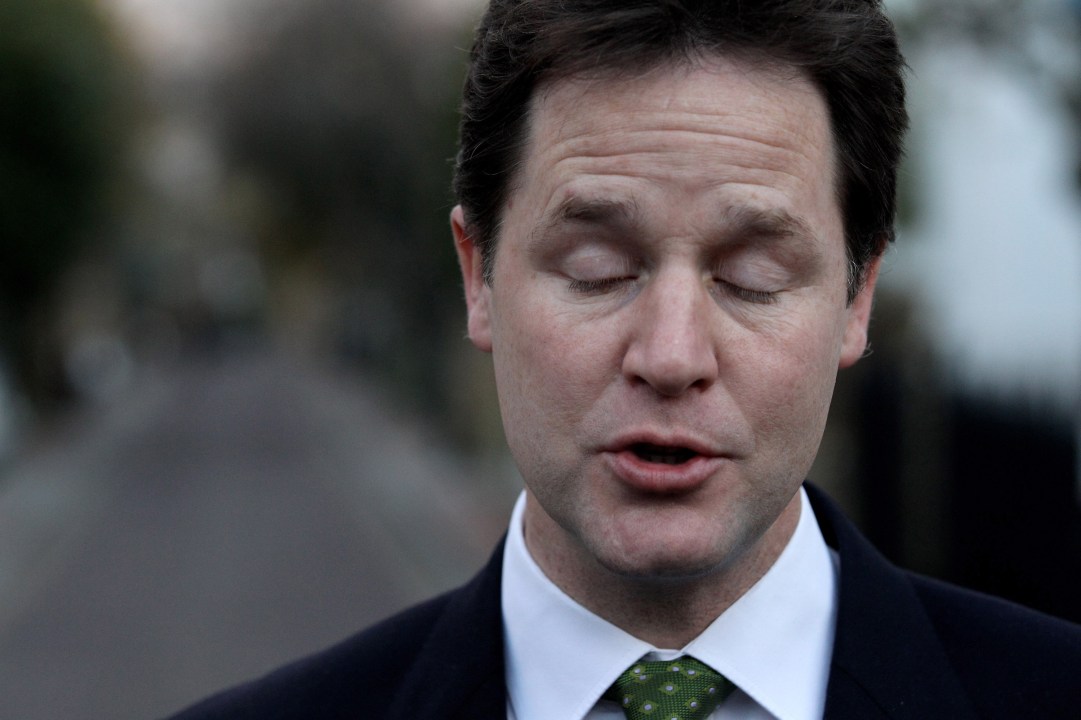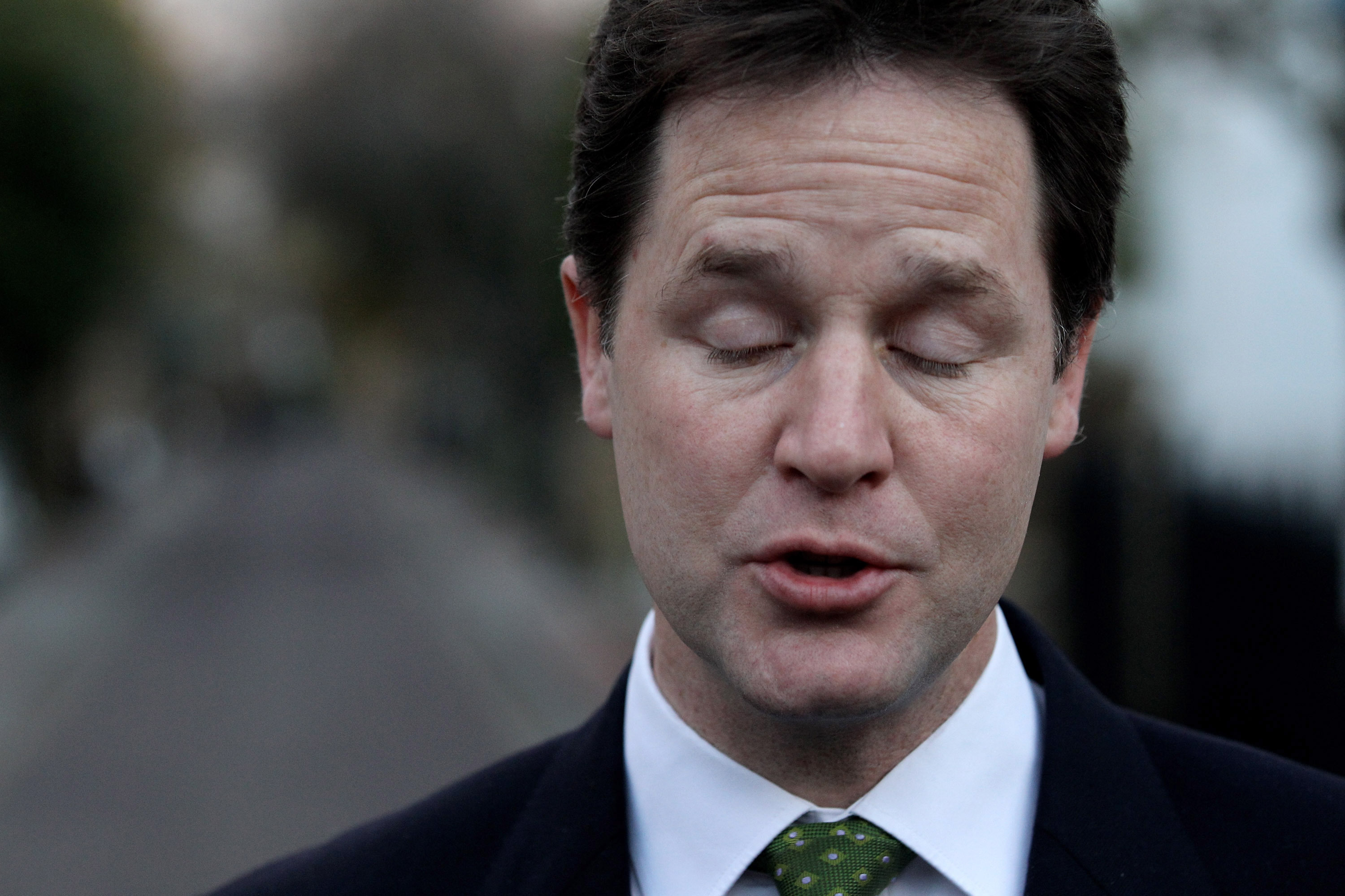 If this morning’s papers are anything to go by, Nick Clegg is in freefall. The man who
was the Lib Dems’ biggest electoral asset is now a magnet for all sorts of political digruntlement. Exhibit A: the Ipsos MORI poll (£) in
today’s News of the World, where 61 percent of respondents say that they don’t trust Clegg, compared to 24 percent in April. He has gone from being “the most trusted politician since
Churchill,” to one of the least since … well, ever. It is no small irony that the leader who sailed most capably on the winds of “change” and “new politics” in the TV
debates has, whether rightly or wrongly, delivered this Parliament’s most stunning example of a broken pledge – and is suffering the fallout from it.
If this morning’s papers are anything to go by, Nick Clegg is in freefall. The man who
was the Lib Dems’ biggest electoral asset is now a magnet for all sorts of political digruntlement. Exhibit A: the Ipsos MORI poll (£) in
today’s News of the World, where 61 percent of respondents say that they don’t trust Clegg, compared to 24 percent in April. He has gone from being “the most trusted politician since
Churchill,” to one of the least since … well, ever. It is no small irony that the leader who sailed most capably on the winds of “change” and “new politics” in the TV
debates has, whether rightly or wrongly, delivered this Parliament’s most stunning example of a broken pledge – and is suffering the fallout from it.
There’s more bad news for Clegg in the same News of the World poll. For instance, 46 percent of voters who backed the Lib Dems at the last election say that they are unlikely to do so again. 64 percent of people oppose the tuition fees. And that’s before we get on to Lord Ashcroft’s latest bumper bundle of poll findings, reported at ConservativeHome. According to that, only 14 percent of Lib Dem voters think that their party has changed for the better since entering government, against 44 percent who think it has changed for the worse. 51 percent want a Labour government, or a LibLab coaltion, after the next election.
This firestorm of numbers is no doubt something that Clegg expected. The question now is whether he and his party can pass through the other side, burnt but healing. Problem is, it’s not quite as simple as waiting for the economy to recover and sharing the credit. Take Ed Miliband’s intervention (£) this morning. Speaking to the Sunday Times, the Labour leader smarms that, “this has been a defining week for Nick Clegg. He’s lost half his parliamentary party. I want to make a clear offer to them that I want to work with them.” The thinking is crude: drive a wedge between Clegg and his party. But it could also be gorily effective. The more this becomes an issue between the right and the left of the Lib Dems, the more uncertain the party’s future and Clegg’s place within it.
In any case, Clegg is discovering just how unwise it was to sign that fees pledge, especially so close to an election where coalition was a viable outcome. He is, to my mind, a capable, persuasive and long underrated politician. But even capable politicians err. And this particular error has cast the Lib Dems into their most difficult internal dilemma since May.







Comments